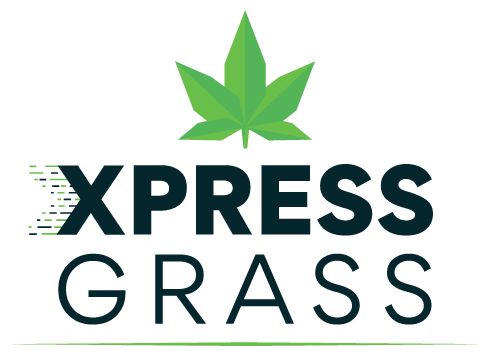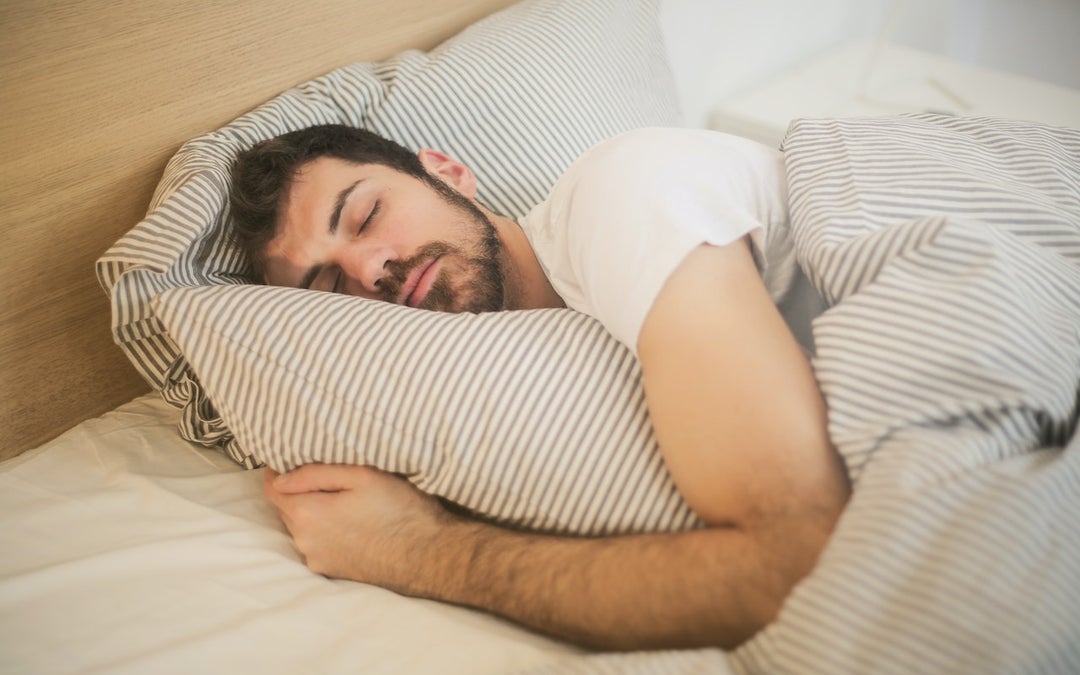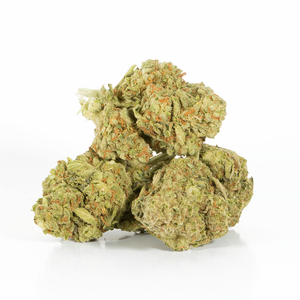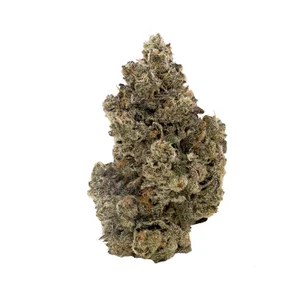Table of Contents
- When Is the Ideal Time to Take CBD at Night?
- How CBD Helps with Sleep
- How Much Should I Take?
- How Long Do CBD Effects Kick In?
- How to Use CBD Oil for Sleep
- Final Thoughts
- FAQ
Sleep. It’s a beautiful thing. And you know what else is beautiful? CBD oil. It can be the answer to making sure that you get enough sleep or helping yourself fall asleep faster. But to maximize its effectiveness, it’s essential to know when to take CBD oil for sleep.
When you’re looking to catch some quality Z’s, follow this rule of thumb: Take your CBD oil 30 to 60 minutes before bedtime. This will give your body enough time to soak up the CBD and start doing its thing.
Just so you know, how you take CBD affects how fast it works. If you add CBD oil to food or drinks, it’ll take a little longer to kick in than if you put drops under your tongue. In this post, we’ll cover some key considerations when taking CBD oil, the best time to take it, including dosage amounts, its effects, and how to use it.
When Is the Ideal Time to Take CBD at Night?
People suffering from chronic pain or other conditions that interfere with sleep may turn to CBD products for relief. But when should you consume CBD at night?
Generally speaking, experts recommend taking your CBD about 30 minutes to an hour before bedtime, so it has time to kick in and help you drift off into dreamland. If you’re using a topical cream, lotion, or balm, they should be applied shortly before lying down as well. The amount of CBD you take and how you take it can impact how well it works. Things like your weight, rate of metabolism, and dosage can all make a difference.
CBD Affects Everyone Differently
Remember that everyone’s bodies react differently to CBD, so experiment with different amounts and times until you find what works best for you. For instance, some people might find that taking their dose 30 minutes prior gives them enough time to wind down, while others could benefit from waiting a full two hours before hitting the hay. The important thing is finding a routine that maximizes your restorative slumber each night.
CBD Absorption: Sublingual vs. Edibles
If you drop some CBD oil under your tongue, it usually takes around 15 to 30 minutes to kick in. In this method, CBD oil can get absorbed into your bloodstream directly, so you’ll feel the effects quicker. But if you have an edible or drink a beverage with CBD, it can take up to 1.5 hours to feel the effects because your liver must process it first.
Plus, your metabolism can also affect how much CBD your body can use. So, it’s worth keeping all these things in mind when you’re figuring out how much CBD to take and how to take it.
How CBD Helps with Sleep
CBD, or cannabidiol, occurs naturally in cannabis. It’s become increasingly popular in recent years for its potential health benefits, including its ability to help with sleep. While there’s still a lot we don’t know about how CBD interacts with our bodies, some studies have shown promising results when it comes to using it as a sleep aid.
In a randomized clinical trial of patients with Parkinson’s disease, CBD helped manage REM sleep behaviour disorder symptoms. Further studies are necessary, but initial evidence suggests CBD as a potential treatment for RBD.
So, how exactly does CBD help with sleep?
1. Works as an Antidepressant
In most cases, depression can be due to low levels of serotonin in the body. Serotonin is a chemical messenger that helps regulate mood, and when levels are low, it can lead to feelings of sadness and hopelessness. However, CBD can work with serotonin molecules to regulate your mood and potentially even help you sleep better.
By increasing brain serotonin, CBD may help alleviate some of the symptoms of depression and improve overall mental health. Although more research studies must be conducted to fully understand how CBD affects serotonin and depression, early studies suggest that it may hold promise as a natural treatment option for those struggling with these conditions.
2. Helps Relieve Anxiety
Anxiety can be a real struggle for many people, and the amygdala in our brains tends to be responsible for it. This little part of our brain is known as the “fear center” and can be overactive in those who suffer from anxiety. However, there’s hope, as CBD has shown promise in reducing the activity of the amygdala, which may lead to a reduction in anxiety and an improved ability to fall asleep.
3. Reduces Pain and Discomfort
Did you know that our body has something called the endocannabinoid system? It’s got two different types of cannabinoid receptors called CB1 and CB2. CB1 receptors are abundant in the central nervous system, while the receptor that dominates our immune system is CB2, which also helps us regulate pain.
And get this: CBD can actually bind to these CB2 receptors and help reduce pain and inflammation! So for people dealing with chronic pain, CBD can be really helpful in getting better rest and sleep.
But that’s not all. CBD can also change the way our opioid receptors respond to pain. These receptors are responsible for the feeling of pain in our bodies, and when CBD binds to them, it can actually reduce that sensation. So if you’re someone who experiences pain throughout the night, CBD could be a great way to get more restful sleep and wake up feeling refreshed!
4. Relieves Stress
One of the biggest signs of stress is having trouble getting a good night’s rest. That’s because when you’re stressed out, your body produces a hormone called cortisol. And having high levels of cortisol at night can make it tough to fall asleep and stay asleep.
But there’s some good news! CBD might be able to help. By reducing the feeling of stress in your body, CBD can actually help you sleep better. It works by stopping the production of cortisol, which helps soothe your nervous system and relax your body.
If you’re struggling to get some shut-eye because of stress, taking CBD oil before bed could be just what you need to help you relax and get some high-quality sleep.
How Much Should I Take?
Deciding on the optimal amount of CBD to take for a restful night’s sleep can prove challenging. It’s important to initially start with a gentle dose and then slowly increase it until you reach your desired effects. A dose of 60 mg is a good starting point, and you can work your way up to 300 mg.
Recent research suggests that people with anxiety disorders may be able to sleep better with as little as 25 mg per day. But higher doses of 300-600 mg per day might be necessary for healthy adults seeking sedative effects.
Consider these important factors when determining the appropriate amount of CBD for sleep:
- Low dose of CBD (25 mg) – If you’re struggling to fall asleep due to stress, anxiety, depression, or pain, a low dose of 25 mg might be all you need to get to sleep.
- Low CBD doses may also cause wakefulness – If you’re a healthy adult without any of these conditions, CBD may actually keep you awake at low doses and require a higher amount to have a sedative effect.
- Gradual dosing – Some people opt for gradually dosing CBD throughout the day instead of taking a single high dose before bed. For instance, instead of taking a 75 mg dose a couple of hours before bedtime, some users may divide the dose by three within the day and take 25 mg for each dose. This approach can help reduce stress, anxiety, and pain throughout the day, making relaxing and getting a good night’s sleep easier.
- THC enhances CBD sedation effect – Taking small doses of THC can also produce a sedative effect and lower the required CBD dose.
How Long Do CBD Effects Kick In?
The amount of time it takes for CBD oil to make you sleepy can vary depending on the type of CBD product you use and the dosage you take.
- Sublingual CBD oil – Drops of CBD oil under the tongue can take 15-30 minutes to start feeling the effects.
- CBD edibles, beverages, and other oral products – When you consume CBD products like gummies or drink them, they have to go through your liver and get processed before they can start working. That can take an hour or an hour and a half. But when it goes through your liver, some of the CBD gets used up, so your body doesn’t get as much of it.
Plus, if you take CBD capsules or honey sticks, they have to go through your stomach first, so it might take 40 minutes to 2 hours before you feel anything.
- Vaping CBD oil – If you want the effects of CBD oil to kick in quickly, you can inhale it with a vape. That usually takes about 15-30 mins. to start working, which is similar to when you put the oil under your tongue. But you need to add thinners when vaping CBD oil, and it’s not a good idea to do that.
In other words, vaping CBD can actually be really bad for your health, and there are some serious risks associated with it. So, it’s probably better to try a different way of taking CBD instead of vaping.
Using CBD oil for better sleep is about finding what works for you and then sticking with it consistently each night so that your body gets into a rhythm of relaxation and restful slumber.
Experimenting with different dosages, frequencies, and methods will help you establish which regimen suits your needs. This will allow you to get back on track with healthy sleep-wake cycles and enjoy all the benefits associated with getting sufficient amounts of quality shut-eye!
How to Use CBD Oil for Sleep
The use of CBD oil during the day is usually recommended to improve sleep at night. With this method, you can assess your body’s reaction to the starting dose and make any required adjustments before taking it at bedtime. Also, using CBD tinctures taken sublingually is the ideal way to ensure fast absorption and maximum effectiveness.
Here’s how to properly use CBD oil for sleep:
- Measure out the desired amount of CBD using the dropper and place it under your tongue, where you should keep it for 60 seconds before swallowing.
- Move your tongue around your palate and gums to increase the rate of absorption.
Around an hour after taking CBD oil, you may start to feel the effects, which include a sense of calm and relaxation that increases in intensity.
Final Thoughts
CBD oil improves sleep patterns, which can lead to feeling more energized during the day and better overall health. To get the most out of CBD oil, you need to figure out the best time to take it, how much to take, and how long it takes to work. Once you know these things, you’ll be on your way to getting the quality sleep your body needs to function at its best.
Everyone deserves a good night’s sleep, so why not give CBD oil a try? We have a fantastic offer that you won’t want to miss! Sign up at Xpressgrass, and we’ll give you a $10 credit toward your first purchase of our high-quality CBD products.
Shop now to explore all the different ways CBD can help you get the peaceful slumber you deserve!
FAQ
What time at night should you take CBD oil?
Try taking CBD oil about 30 minutes to an hour before hitting the sack to help relax and release any tension from the day.
Does CBD oil help you sleep all night?
Yes, CBD could potentially help you get some much-needed sleep at night.
How do you take CBD oil before bed?
Try putting a couple of drops under your tongue and giving it 30 to 60 seconds to absorb. Once it enters your bloodstream, it has the greatest potential for quick and effective results.
Is CBD better than melatonin for sleep?
Studies indicate that compared to melatonin, CBD is a safer and more efficient option to enhance the duration and quality of sleep.
Can I drink water after taking CBD oil?
Yes, you can. Since sublingual intake delivers CBD oil into the bloodstream rapidly, drinking water won’t interfere with its absorption or effectiveness.
Does CBD oil help sleep anxiety?
Some research studies have suggested that CBD holds promise as a potential treatment for anxiety disorders, including sleep anxiety.
How many mg of CBD should you take for relaxation?
It usually depends on your needs and the products you’re using. The CBD market offers a wide range of options, with 10 mg of CBD per day being on the lower end, 20-25 mg considered moderate, and 45-50 mg and higher being the more potent doses.
Why is CBD oil not making me sleepy?
When consuming CBD, observing how your body responds to various doses is essential. Surprisingly, small doses of CBD can improve alertness, while higher doses may cause drowsiness as a side effect in some people.
Can CBD oil replace sleeping pills?
CBD oil may be a helpful sleep aid for some people, but whether or not it can fully replace sleeping pills is still up for debate and depends on a variety of factors.
Can I take melatonin and CBD together?
The effects of combining melatonin and CBD can be different for each person and the specific products being used. However, it is usually safe to take melatonin and CBD together.
Sources:
Movement Disorders – Cannabidiol for Rapid Eye Movement Sleep Behavior Disorder – https://pubmed.ncbi.nlm.nih.gov/33754375/
Prog Neuropsychopharmacol Biol Psychiatry – Antidepressant-like effect induced by Cannabidiol is dependent on brain serotonin levels https://pubmed.ncbi.nlm.nih.gov/29885468/
Neurotherapeutics – Cannabidiol as a Potential Treatment for Anxiety Disorders https://www.ncbi.nlm.nih.gov/pmc/articles/PMC4604171/
Front Pharmacol – Cannabinoids and Pain – https://www.ncbi.nlm.nih.gov/pmc/articles/PMC6277878/
Perm J – Cannabidiol in Anxiety and Sleep: A Large Case Series – https://www.ncbi.nlm.nih.gov/pmc/articles/PMC6326553/
Statpearls Publishing – Cannabis Versus Opioids for Pain – https://www.ncbi.nlm.nih.gov/books/NBK573080/






